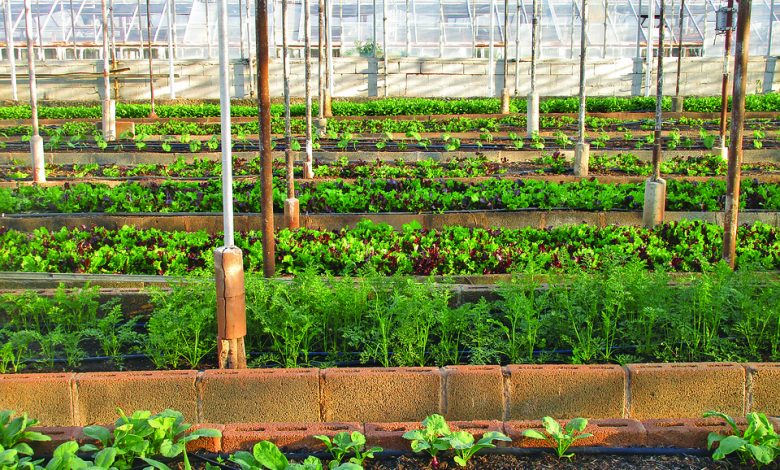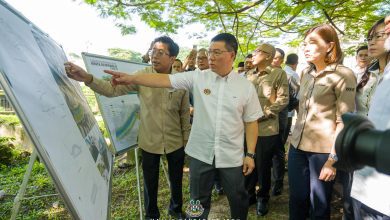

By Joachim Ng
Go into farming to reduce your daily expenses. The Perak State Government is encouraging urban agriculture as a method of producing one’s food in addition to potentially boosting the local community’s economy. It’s a good move, as Malaysia currently produces only 60% of the fruits and 48% of the vegetables we need.
With food inflation, some households are even thinking of cutting down on kangkung. Last month, a listing of 12 vegetable types on sale at a wholesale market showed that prices had risen 43% between 13 Jan 2023 and 1 Feb 2023. The 12 vegetable types were: cucumber, long beans, okra, kangkung, kacang botol, French beans, Baby French beans, tomatoes, cherry tomatoes, brinjal, red chilli and celery leaves.
If thousands of urbanites grow fruits and vegetables for consumption within the neighbourhood, it will increase the market supply of local produce and everyone benefits when overall food prices come down. But to ensure longterm success for urban farming there must be some targetted participant groups chosen for their motivation.
The best target group are the retirees as they have the greatest need for money to keep going without having to fall back on financial support from grown-up children who need every sen to spend on their own young. Six months ago, the Employees Provident Fund stated that RM600,000 is needed for dignified retirement living in a city. Drawing an annual dividend of 5-6%, this amount will pay for housing instalment or rental, utilities, food, medical insurance premium, and medical bills.
But only 4% of Malaysians have RM600,000 in EPF. Unless the shortfall is accounted for by other retirement savings or rental earnings, the bulk of retirees need to find work if they want to avoid living under the bridge eventually. However, just a month ago some economists declared that RM2 million is needed to retire comfortably in an urban area because of the steeply rising cost of living.
Of the 32.7 million people in Malaysia, retirees who number 10.4% of this total are the most desperate lot thrown out of the workforce like ageing tigers beaten to the prey by younger cats. Our retirement law originated from the United States. President Franklin Roosevelt (1933-1945), faced with a high youth unemployment rate, hit upon a jungle solution: push out the old to make way for the young. To this day thousands of aged homeless live in tents on the walkways of American cities.
In Malaysia, three million seniors have been forcefully evicted from their jobs to be replaced by fresh graduates at startup pay, and we complain of a labour shortage in all industries! The Malaysian Employers Federation (MEF) has claimed that when the retirement age was raised to 60 in 2013, more than a million fresh graduates were left without opportunity for employment. But the truth is that more than a million jobs went to foreign workers at dirt pay.
Furthermore, as consultant rheumatologist Prof Dr Sargunan Sockalingam has said: “The concept of ageism where one thinks anyone above the age of 60 is not physically capable is a myth.” As Malaysia is fixed on keeping the retirement age at 60 instead of following the new global trend of indexing retirement age to life expectancy, our cities will eventually resemble Los Angeles with tent homes on sidewalks. Many of our retirees have already ended up staying in transit centres.
Instead of hiring local retirees, commercial farms are desperately seeking foreign labourers to water the kangkung. But our seniors have accumulated vast experiental knowledge and skills. They understand the need for good governance and management, staying power, patience, social traditions, and loyalty on the job. These traits can be applied to farming, and a United Nations study has shown that older farmers are more conscious of the need to prevent environmental degradation.
The MEF claims that retirees have great problems coping with digitalisation. While farming has gone hi-tech, there is little digitalisation requirement and hence the MEF should assist the Government to get retirees into urban farming. Plants need attention and the elderly possess a greater sense of responsibility compared with the younger cohort who tend to be less disciplined. In any case, even the children of farmers are no longer interested in farming.
The Government should plan for three types of urban farming areas: a retiree’s own house garden, the compound of a neighbourhood community centre, and idle public land. Financing is required and the Government should arm-twist the banks to spin off subsidiaries that offer micro-financing terms at normal bank rates and without collateral. These micro-financing subsidiaries should also conduct financial literacy training without charge.
Advanced technology has made it possible to scale farming down to house garden size. Vertical farming using the hydroponic system has been successfully tested. Fruits and vegetables are planted in polyvinyl chloride cylindrical towers connected to a water source. Eco-friendly nutrients such as seaweed-based solutions and natural pesticides must be encouraged. The infrastructure cost for home farming may be around RM6,000.
Not many retirees have a garden, and hence the best option is for the local city or town council to form neighbourhood farming cooperatives for the retirees and allocate land around the community centres for them to plant. To ensure everyone fulfil their responsibilies, they should sign individual micro-loan agreements although the money goes to the pool. The retiree co-op members are paid dividends out of the profit from sales. Infrastructure cost should be capped at RM25,000.
Scale up further and the Government should lease idle public land to retirees who can provide evidence of successful home or community farming experience. In Britain, these are known as allotment gardens. The State Government or local authority can even lease idle land owned by utility companies and sublease them to individual retirees or retiree cooperatives. Rental cannot be too low of course, because the landlord has to provide water supply connection and flatten the land.
It is vitally important that retiree farming be fully organic and natural so that their produce occupy a much-desire health niche and do not compete with commercially produced fruits and vegetables. To ensure the retirees do not fail, the Government must organise farm training on a free-of-charge basis. There is a lot of farming expertise that the Government can draw upon to accomplish this.
========================================
Disclaimer: The views and opinions expressed in this article are those of the author and do not necessarily reflect the official policy or position of Ipoh Echo


